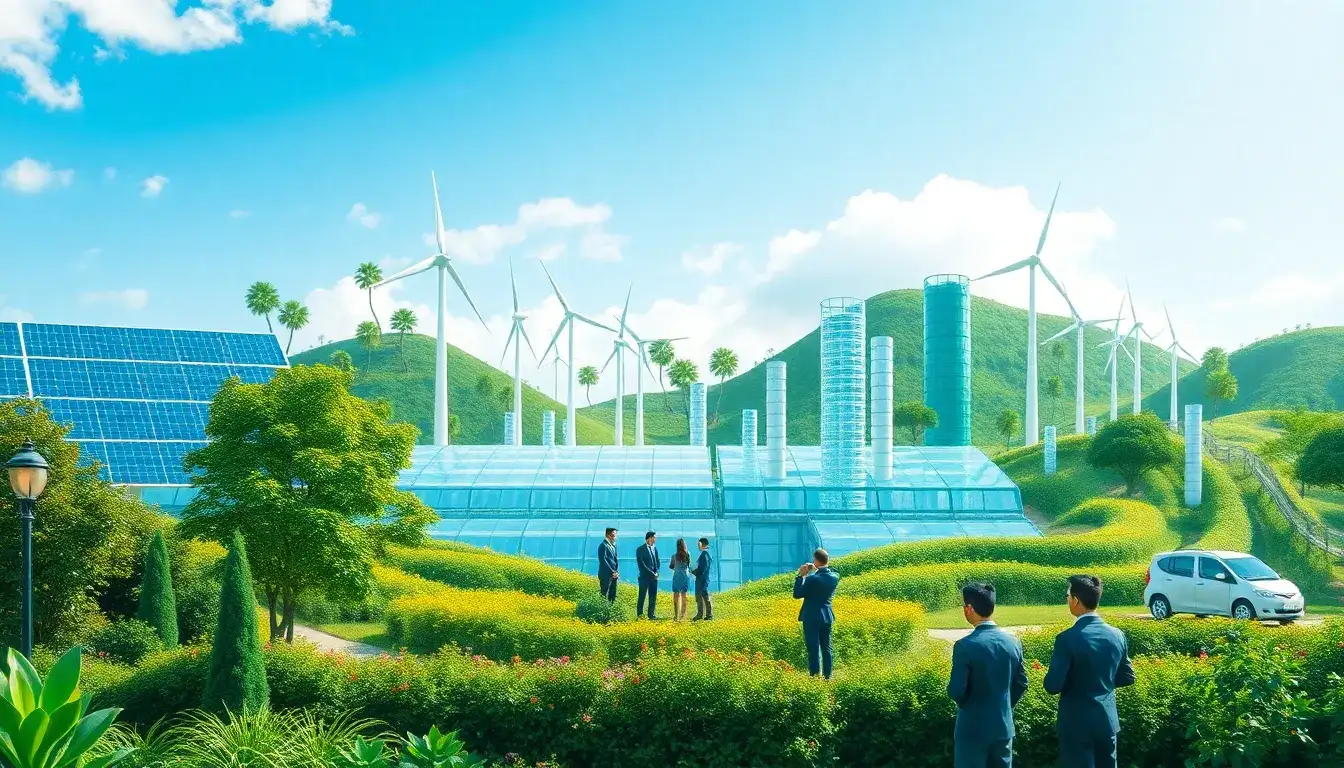
On March 26, during the Boao Forum for Asia Annual Conference 2025, the sub-forum titled “Accelerating the Construction of a Safe, Systematic, Efficient, and Intelligent New Energy System for a Shared Green Future” was successfully held. Participants engaged in in-depth discussions on promoting the green and low-carbon transformation of energy and deepening international energy cooperation, providing valuable insights for addressing global climate change and advancing sustainable economic and social development.
Zhang Jun, Secretary General of the Boao Forum for Asia, delivered an opening speech, along with notable attendees such as Song Hailiang, Party Secretary and Chairman of China Energy Engineering Group; Guo Liejin, Academician of the Chinese Academy of Sciences and Professor at Xi’an Jiaotong University; Wegger Christian Strømmen, Norwegian Ambassador to China; Yu Weiping, Vice President of CRRC Corporation; Yu Zhiyong, Chief Technology Officer and Group President of Qingqi Energy; and Patricio Contesse, Vice Chairman of a Chilean chemical and mining company.
In his address, Zhang Jun emphasized that the Boao Forum for Asia places significant importance on tackling global climate change and promoting a sustainable, high-quality, and green development path during economic transformation. He stated that constructing a new energy system and facilitating energy transition are essential and achievable paths for human society. This multifaceted effort requires robust support from policies, technology, funding, infrastructure, and market systems, necessitating collaborative efforts from countries worldwide. He expressed hope that the discussions at this forum would yield fruitful outcomes to contribute wisdom for global green and low-carbon development.
Song Hailiang highlighted that addressing the challenges posed by global climate change and realizing sustainable development is a pressing question of our time. As one of the world’s largest providers of integrated solutions in the energy and power sector and a major infrastructure investment contractor, China Energy Engineering Group is committed to being a contributor, promoter, and leader in the global energy green transition. He outlined the path and systemic solutions for constructing a safe, systematic, efficient, and intelligent new energy system, emphasizing four key aspects:
- Adoption of “Four Major Thoughts”: Strategic thinking, systematic thinking, AI thinking, and dialectical thinking.
- Focus on “Three Variables”: Upgrading traditional energy in existing markets, creating a “30-60” system solution with one center and two support points for integrated energy storage and hydrogen energy, and promoting the integration of development across four major elements and fields.
- Advancing “Four Transformations”: Centering on innovation, green, digital intelligence, and integration to provide more advanced, comprehensive, systematic, and integrated solutions.
- Focusing on “Five Ends”: Promoting diverse green supply on the supply side, facilitating diverse green alternatives on the consumption side, guiding spatial optimization on the layout side, implementing technological innovation breakthroughs on the technology side, and enhancing policy support on the mechanism side.
Song Hailiang also mentioned that the second golden decade of the “Belt and Road” initiative would mark a significant period for China Energy Engineering Group in its global expansion. The company aims to take on the mission of high-quality cooperation under the initiative and better integrate into the country’s high-level opening strategy through “three leads and one cooperation.”
Guo Liejin noted that the progress of humanity is fundamentally based on energy, and the essence of a new energy system lies in the industrial chain, with scientific and technological breakthroughs at its core. He emphasized that hydrogen energy will be a crucial secondary energy source in the future clean energy system, and highlighted the need to strengthen technological innovation in the hydrogen energy sector to achieve low-cost, large-capacity, and continuous efficient hydrogen production.
Wegger Christian Strømmen stressed the importance of international cooperation in addressing climate change and promoting energy transition. He noted that Norway and China have maintained close cooperation on green transition for over 30 years and expressed hope for continued collaboration in areas such as carbon emission trading, carbon capture and storage, international shipping carbon neutrality, and green hydrogen and ammonia.
Yu Weiping pointed out that CRRC Corporation is actively implementing the “dual carbon” strategy and is focused on driving technological innovation breakthroughs in high-speed rail and new energy equipment, establishing a new development pattern centered on transportation and clean energy equipment.
Yu Zhiyong remarked that the next five years will be a pivotal period for hydrogen energy to transition from demonstration to large-scale application. He noted that hydrogen energy is evolving from a “supplementary energy” to a “key energy,” with its strategic value lying in enhancing the resilience of the new energy system, restructuring energy frameworks, and promoting global energy cooperation.
Patricio Contesse emphasized the need to effectively promote the energy transition through free trade and an open economy, avoiding false prosperity. He expressed hope to leverage Chile’s abundant lithium resources in collaboration with Chinese partners to play a more active role in energy transition.
Li Lina, Chief Accountant of China Energy Engineering Group, and Zhou Xiaoneng, Chief Economist and General Manager of the Market Development Division, along with various department heads also participated in the forum.







